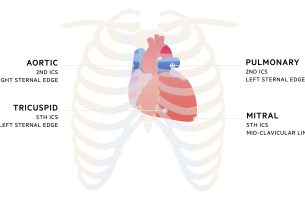How to examine the heart – and cardiovascular system (CVS) Summary (‘PINHAT-CsAsT’) P – Pre-observation I – Introduction – start well N – Nails and fingers H – Handshake (diagnostic) and hand – radial pulse, rate, rhythm, character (collapsing?) Note. Signs of endocarditis can be apparent on the handshake (nailfold infarcts, splinter haemorrhages, and Janeway lesions/Oslers nodes […]
Read MoreDoes the NHS work at weekends? No, most of it does not work at weekends. it should. MyHSN apologises. For example, hospitals do not run all services at the weekend or 24 hours a day. The most senior hospital doctors (consultants) are present in small numbers at weekends and on bank holidays. Hence most wards […]
Read MoreWorking in intensive care (ICU): 5 pros and 5 cons 5 pros 1. Highly controlled and supervised environment As the name suggests, ICU can be intense, but it is also very organised and controlled. You will be working within a highly focussed and diligent multi-disciplinary team. There is always senior supervision (even on nights) and […]
Read More10 facts about gallstones In this article, we will describe 10 facts about gallstones. It is largely for health professionals. Key Points Definition: Gallstones are solid deposits that form in the gallbladder and may lead to biliary colic or more serious complications, including cholecystitis and pancreatitis. Content: They are made up of cholesterol, bilirubin, and […]
Read More10 RA (rheumatoid arthritis) facts In this article we will describe 10 rheumatoid arthritis (RA) facts. Let’s start with the basics. Typical rheumatoid hands Key points RA can occur at any age, but most often appears between the ages of 30 and 50 years old It is a disease of the immune system. It occurs […]
Read More10 diverticular disease facts In this article, we will describe 10 diverticular disease facts. Diverticulae in lower left colon Key Points Range of conditions: diverticular disease encompasses a spectrum of conditions, including asymptomatic diverticulosis, symptomatic diverticular disease, and diverticulitis (inflammation of diverticula) Epidemiology: it is common in Western populations, particularly among older adults, and is […]
Read MoreCOPD – patient information In this article we will describe information for patients on COPD. Key points Smoking cigarettes is the most common cause of COPD COPD gives you a cough and shortness of breath You may need inhalers and tablets to relieve your symptoms If you have severe COPD, you may need to take […]
Read More10 bariatric surgery facts In this article we will describe 10 facts about bariatric surgery. 1. What is bariatric surgery? Bariatric (or weight loss) surgery is a treatment for people who are very obese. It is also called bariatric or metabolic surgery. Significant and sustained weight loss can be achieved. 2. Does it lead to long-term weight […]
Read More10 Strep A facts In this article, we will describe 10 Strep A facts and what is a strep A throat, and how you know if you have it. Strep A causing a tonsillitis, with red swollen tonsils and pus in them Terminology ‘Strep A’ is an abbreviation for a bacteria called Group A Streptococcus […]
Read MoreEczema – patient information We will now describe information for patients on eczema. Let’s start with the basics. 1. What is atopic eczema? Atopic eczema is a very common skin condition characterised by skin inflammation. ‘Eczema’ is a word which comes from the Greek word ‘to boil’; and is used to describe red, dry, itchy […]
Read More





